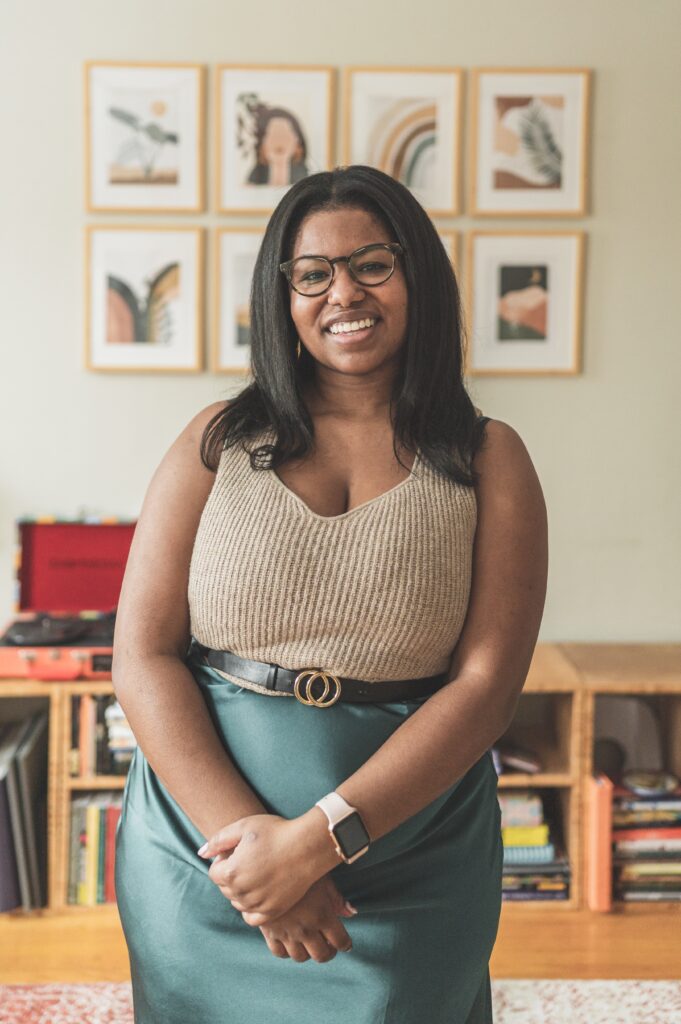There’s a lot going on in the world. And so much of it is terrible. There are active genocides taking place. People are losing lives. It’s sad. Tragic, even. If you’re not careful reading and ingesting all of this news, it can leave you feeling drained, despondent and helpless. Still, it is important to be informed and to help strike a balance between knowing what’s happening in the world and taking care of ourselves. 21 Ninety spoke to qualified mental health professional (QMHP), Ashantis Jones about how to disconnect when the news gets too heavy.

Consuming News
We’re living in the Information Age. We can find the answer to anything we want to know within seconds. While that’s made life convenient and helped us to connect to people all over the globe, it also exposes us to the pains of the world. Jones says that news consumption should be something we tailor to our personalities. “The way people consume news really just needs to be in whatever way they feel is the most effective to them and their own learning process,” Jones says. That can mean choosing between visual or auditory or print mediums and being intentional about why you chose that medium. “The point of us consuming this news is for us to be educated, understand and then take action of some sort,” Jones says. “If we’re just consuming with nonstop news and and not trying to reinvest that energy then it will lead to hopelessness, burnout and despair.”
Reinvesting the Energy
Jones advises us to do more than be passive consumers. Otherwise, taking on negative energy without redirecting it can leave us feeling heavy. “The important piece of healthily taking in news is also creating action from it,” Jones says. “If you just learned something new, are you sending that information to other people who may also need to learn this thing? Do you have a platform? Are you using your platform to drive awareness? Are you reading something and then maybe donating your dollars if you have that capital available to you?” Action steps may vary but we all can do something.
Creating a News Schedule
With 24-hour access to information, it’s important to know when and how to healthily disconnect. Jones recommends a schedule. Determine what part of the day is best for you to read distressing information. Is the morning better or will it ruin the rest of your day? Should you catch up at night or will it affect your ability to sleep well? “You have to find what is that baseline for you because it’s so individualistic,” Jones said. Time limits each day are also healthy. For example, Jones suggests saying, ‘‘I’m only allowing myself twenty minutes because any more than 20 minutes, it’s going to consume me. It’s not going to allow me to do what I need to do for the rest of the day.’
A Healthy Disconnection
Many of us get our news from social media so Jones suggests making the apps work for you. “If Instagram is where you get your news, maybe you’re muting some of the people that you get your news from and you’re intentionally going to look for it at the time when you know you have the energy to take that in,” she suggests. “You’re not unfollowing these creators and educators but maybe you’re muting them so you have the ability to go and seek that out when you’re in a better place.”
Switching up the news mediums, choosing auditory news like podcasts over visual storytelling can help as well. “[If] the visuals of seeing this destruction and despair is causing your energy to deplete, you’re not going to be able to take care of yourself,” Jones said.
Still Jones said we need to be wary about ignoring heavy news altogether. “Yes, you need to take time for yourself but don’t completely turn it off,” she says. “When you completely turn it off, you get very desensitized and that starts to play into us thinking of ourselves solely as individuals. But the reality is that humans need other humans. Community care is extremely important.”
Movement
We shouldn’t underestimate the role movement can play in affecting our overall mood. Sitting in front of the computer or scrolling on our phones can distract us from moving our bodies. Jones, who is also a personal trainer, says movement is more than just about weight loss. “When you dig past the aesthetics, the purpose of movement is to be able to support different chemical reactions that are happening throughout the body. You’re going to get an increase in dopamine. You’re going to get an increase in serotonin.” These chemicals help you to not only feel better but to nourish yourself. “The more you have in your cup, the more you’re able to support the people around you,” Jones says. The people around you can be friends and family or the global community at large.
